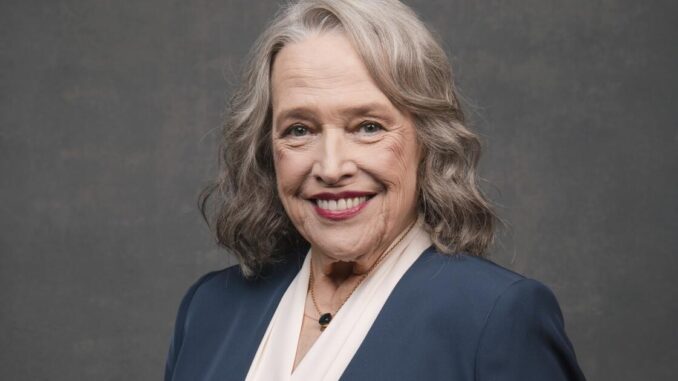
The Unseen Architecture: Kathy Bates Reflects on the Parents Who Gave Everything, They Gave Up So Much
Kathy Bates, with her formidable talent and no-nonsense presence, has long commanded the screen, embodying characters steeped in a gritty realism and profound humanity. Yet, beyond the accolades and the transformative roles, lies a deeper current of understanding that fuels her art: a poignant reflection on the silent architects of her life – her parents, who gave everything and, in doing so, gave up so much. Her contemplation isn’t just a personal anecdote; it’s a universal testament to the quiet, often unacknowledged heroism of those who build futures not for themselves, but for their children.
To speak of parents who “gave everything” is to paint a portrait of relentless dedication. It evokes images of early mornings and late nights, of hands calloused by labor, minds burdened by responsibility, and hearts propelled by an unwavering love. For Bates, this likely wasn’t just about putting food on the table or a roof overhead; it was about the ceaseless effort to provide opportunity, to cultivate curiosity, and to instil values that would serve as the bedrock of her character. It was the daily grind undertaken without complaint, the small, unnoticed acts of self-denial that accumulated into a mountain of provision. One can imagine a young Kathy observing the unwavering steadfastness in her parents’ eyes, the weary smiles that still conveyed reassurance, the discipline they embodied not through lectures, but through the sheer force of their example.
But the true poignancy of Bates’s reflection lies in the second part of the equation: “they gave up so much.” This speaks to the unseen cost, the quiet sacrifices that often remain unspoken, lying like ghost stories beneath the achievements of their children. What were their own dreams? What passions did they defer? What personal aspirations were carefully, perhaps regretfully, folded away like old letters, replaced by the immediate, pressing needs of their family? Perhaps a mother’s artistic inclinations were set aside for the demands of homemaking or a more practical career. Perhaps a father’s desire for adventure was grounded by the weight of financial obligation. These are the narratives of lost possibilities, not mourned with fanfare, but accepted with a profound sense of duty and love.
From her vantage point of success, Bates undoubtedly looks back with a clarity that only time and experience can offer. She can now, perhaps, fully grasp the enormity of those abandoned pursuits, the silent renunciations that paved her own path. This understanding imbues her performances with a particular resonance. When she portrays ordinary people grappling with extraordinary circumstances – the fierce resilience of a maid, the quiet dignity of a wife, the unyielding spirit of a marginalized woman – one can sense the echo of her parents’ own uncelebrated strength. Her empathy for the human condition, particularly its struggles and its quiet triumphs, feels deeply rooted in her appreciation for the unseen architecture of sacrifice that supported her own upbringing.
In reflecting on her parents, Kathy Bates isn’t merely expressing filial gratitude; she is articulating a profound truth about the human spirit and the foundational nature of love. She reminds us that true legacy isn’t solely about what one achieves, but also about what one gives and, perhaps more tellingly, what one forgoes for the sake of another. Her parents built a future for her, not with grand gestures, but with the consistent, arduous work of their hands and hearts, surrendering pieces of themselves to create a whole for their child. Their sacrifices, once perhaps invisible or taken for granted, now stand revealed as the very pillars upon which her remarkable life and career have been built – a quiet, yet powerful testament to the enduring, self-emptying power of parental love.
